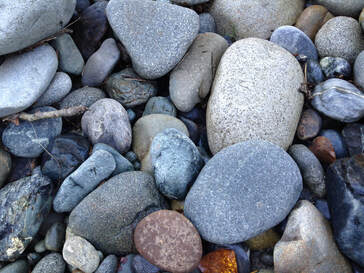K’atł’odeeche, Northwest Territories

Year(s) Funded: 2015-2016
Topic Area: Mental Health Contact: Peter Groenen, K’atł’odeeche First Nation, ([email protected]) Partners: K’atł’odeeche First Nation, Gagos Scoial Analysts, Chief Sunrise Education Centre Website: http://www.katlodeeche.com Title: Finding Solutions to the Health Impacts of Climate Change
Action: The overall goal of this project was to understand and document how climate change impacts daily lives and to find acceptable solutions that respond to community needs and circumstances, based on traditional Kátł’odeeche culture, values, and laws. The community used the participatory action research method. This approach is grounded in the view that community members control all aspects of the research. The community conceived the project. An advisory committee (two elders—one male, one female) guided the research team, which included three community researchers, trained by and working with a principal investigator. Research activities included focus groups, individual interviews, on-the-land land harvesting experiences and activities, and information sessions. In all activities, stories were vital to understanding. Community researchers listened to and documented stories from male and female elders and harvesters, and gained information on environmental changes since the 1950s. Research methods and activities followed the Dene system of exchanging information—building relationships through oral narratives and experiencing with those who are considered knowledgeable. Results: Many elders and harvesters believe that changes occur because humans have forgotten how to respect the earth and each other. This includes disrespecting human and cultural variation, as well as animals and plants and other beings that inhabit the earth. For them climate change is a result of long-term disrespect and misuse of what the earth has to offer. The Kátł’odeeche look to Dene teachings, knowledge, and laws for insights on how best to adapt to climate change. Promoting, retaining, and using Kátł’odeeche knowledge is at the core of all actions. We wish to see elders, harvesters, and youth work together as they link our ancestral environmental knowledge of the past to the Kátł’odeeche Dene of the future. Outputs: In spite of the stress and challenges associated with climate change, the Kátł’odeeche main focus is to stay connected to our traditional lands. We want our children to know the land so they can maintain a flexible character and an ability to work in the community to find solutions to maintaining their life as Dene, while living in a global society. We are optimistic that if we respect and know the land, the land will teach us and take care of us in the future as it has done in the past. Our research adds to the small but growing body of knowledge about the relationship between the impacts of climate change and the health and wellbeing of the land and the people, including mental health. Our research focused on how indigenous people use their knowledge to adapt and survive. |
